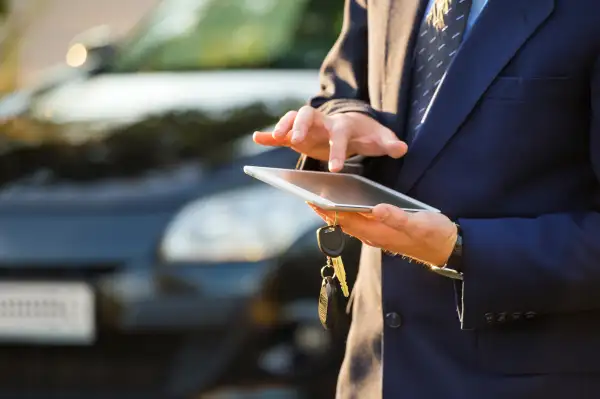Used Car Prices Have Fallen for 4 Months Straight

Used car prices are finally dropping — but that doesn’t necessarily mean it’s a great time to buy.
The average price of a used vehicle has fallen for four months in a row, dipping below $29,300 in July, says the automotive research firm Edmunds.
But don’t pop the Champagne in celebration just yet.
“We're still very far away from what anyone who's ever bought a used car in the past will be able to relate to,” says Ivan Drury, senior manager of insights at Edmunds.
While prices are heading in the right direction, they’re still historically very high. The highest average used vehicle price on record at Edmunds was $29,969, notched in December 2021. Prices have fallen fairly consistently since then, but not by much.
Compared to July 2021, used car prices are up 7.4%, or about $2,000 more expensive. In February 2020, before the pandemic, used cars were selling for about $20,700 on average.
The recent drop in prices isn't noticeable enough for folks to sprint to a dealer. But the trend does give you “the gift of additional time,” Drury says. In other words, you won’t likely have to make any rash buying decisions for fear of skyrocketing prices like in months past.
On the other hand, cheaper used car prices could have the opposite effect for those who are looking to trade in their vehicle to knock down the price of a brand new one.
“They will likely start seeing depreciation chip away at their vehicle values, which could make someone want to line up their next purchase sooner [rather than] later,” Drury says.
In July, the average trade-in value of a used vehicle was about $23,500 — historically high but a 1.6% drop from the prior month.
In short, the used car market is still out of whack, and you may even come across certain models of used cars priced higher than the brand new version.
Monthly car payments on the rise
Another reason you might want to keep the Champagne corked? Interest rates on auto loans are rising — and higher rates can cancel out the benefit of a cheaper purchase price.
“Affordability has worsened as we’ve seen big increases in interest rates, especially over the last few months,” said Jonathan Smoke, Cox Automotive’s chief economist, in a recent auto market report.
In July, interest rates for used auto loans hit 8.8%, according to Edmunds — shooting the typical monthly payment to $564, a series high. Compared that to July of last year, when average monthly payments were $502, with an APR of 7.5%. (For new cars, with average prices now exceeding $47,000, many Americans are paying $1,000 a month or more.)
Several factors go into an auto loan’s rate, but it’s overall based on the benchmark rate set by the Federal Reserve. The Fed has already increased rates four times this year in a bid to tame inflation, and the central bank has signaled it plans to do so again in September. As a result, interest rates on auto loans have jumped across the board in 2022.
Even when your auto loan rate is only slightly higher when you buy, it can result in a noticeable increase to your monthly payments. And when it comes to affordability, monthly payments are arguably more important than the purchase price itself.
Case in point: Back in December 2021, when used vehicles prices hit an all time high, the typical monthly payment was actually $23 cheaper than it is now.
More from Money:
4 Ways the Inflation Reduction Act Will Save You Money

